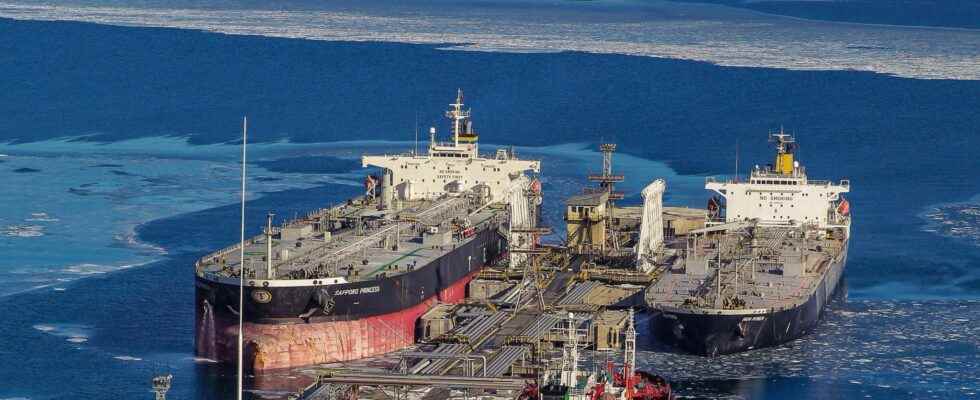Almost a year after the launch of the Russian offensive on Ukraine, the waves of sanctions from the European Union against Russia are linked. This Sunday, February 5, no EU country will be able to import from Russia, by sea, refined petroleum products (diesel, gasoline, heating oil, kerosene, etc.). A temporary exception is, however, foreseen for imports of crude oil by pipeline into Member States which, due to their geographical location, are dependent on Russian supplies and do not have a viable alternative.
Although the European Parliament has voted for the total ban of diesel vehicles in 2035, this fuel resulting from the refining of crude oil is currently the most used in European vehicles. In France, 15% of new registrations in 2022 are based on a diesel engine, hence some concern about prices. The embargo should not, however, have significant effects in the short term, recently reassured the European Commissioner for Energy, Kadri Simson, recalling in particular that European countries must have strategic reserves equivalent to two months of domestic consumption. Despite a sharp decline for nearly a year, more than a quarter of Europe’s diesel imports still came from Russia in early 2023, according to global tanker tracking data analyzed by S&P Global.
Russia would lose “160 million euros” per day
This new ban comes after that of coal at the beginning of August 2022 and that of crude oil on December 5, 2022. In parallel, the EU States and the G7 + adopted, on Saturday February 4, new ceilings for Russian petroleum products transported by sea – such as diesel and fuel oil. The agreement includes a ceiling price of 100 dollars per barrel for more expensive products, such as diesel, and another of 45 euros per barrel for less refined products, such as fuel oil. It concerns all Russian petroleum products transported by ships from partner countries.
“With the G7, we are setting price caps on these products, to reduce Russian revenues while ensuring the stability of the global energy market,” commented the President of the European Commission, Ursula von der Leyen. According to her, this limitation costs “about 160 million euros per day” to Russia. A tenth wave of sanctions is also expected by February 24, exactly one year after the start of the invasion.
“This will further unbalance the international energy markets”, reacted for his part the spokesperson for the Russian presidency, Dmitry Peskov, while assuring that Russia “was taking measures to cover (its) interests against the risks which appear”. In retaliation for the first sanctions, Moscow has already banned since February 1 the sale of its oil to countries using the price cap. And earlier this week, the Russian government barred domestic oil exporters and regulators from adhering to Western-imposed price caps on its crude oil.
